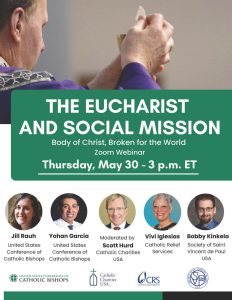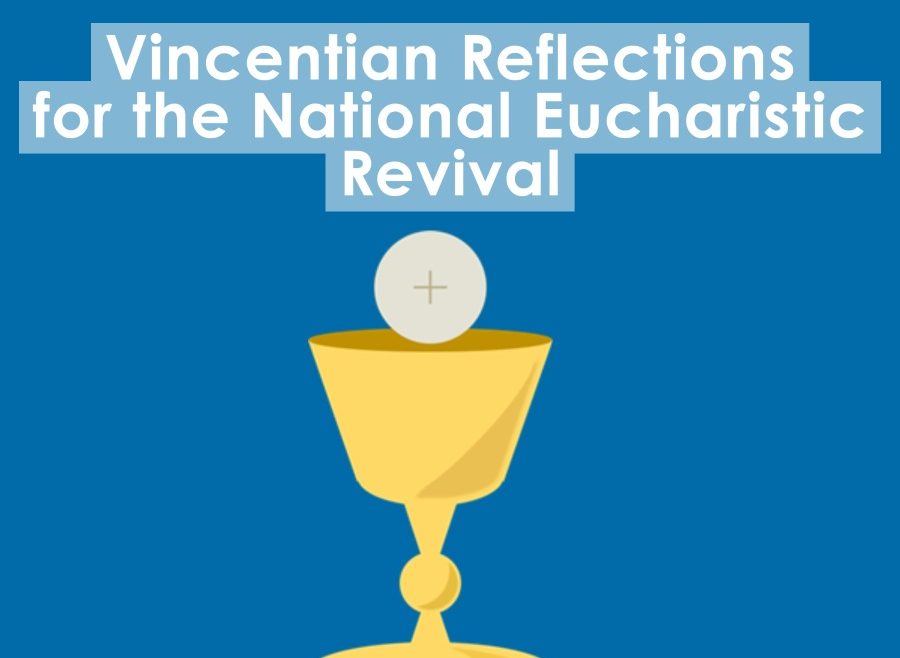The Eucharist and Social Mission
Join us on May 30 at 3:00 p.m. Eastern Time to reflect on The Eucharist and Social Mission: Body of Christ, Broken for the World during the Solemnity of Corpus Christi. Together, we will break open the Theology of the Eucharist and consider how our liturgical practice calls us to be missionary disciples, going forth from the Eucharistic meal to accompany those who are poor and vulnerable. This webinar will also provide practical examples, resources, and tools to help our Eucharistic communities live the call to transform all that degrades human life and dignity and create systemic change. This virtual event is co-sponsored by the Department of Justice, Peace and Human Development of the United States Conference of Catholic Bishops, Catholic Charities USA, Catholic Relief Services, and the Society of St. Vincent de Paul. Register here.
En Español
Acompáñennos el 30 de mayo de 2024 a las 7:00 p.m., hora del este, para reflexionar sobre La Eucaristía y la Misión Social: El Cuerpo de Cristo, Partido y Entregado por el Mundo durante la Solemnidad del Corpus Christi. Juntos, profundizaremos sobre la Teología de la Eucaristía y consideraremos cómo nuestra práctica litúrgica nos llama a ser discípulos misioneros, saliendo del alimento eucarístico para acompañar a los más pobres y vulnerables. Este seminario web también proporcionará ejemplos prácticos, recursos y herramientas para ayudar a nuestras comunidades a transformar todo lo que degrada la vida y la dignidad humana y crear cambios sistémicos. Este evento virtual es copatrocinado por el Departamento de Justicia, Paz y Desarrollo Humano de la Conferencia de Obispos Católicos de los Estados Unidos, la Asociación Nacional Católica de Directores Diocesanos para el Ministerio Hispano, el Consejo Nacional Católico para el Ministerio Hispano, Caridades Católicas de los Estados Unidos, Catholic Relief Services y la Sociedad de San Vicente de Paúl. Regístrense aquí.




